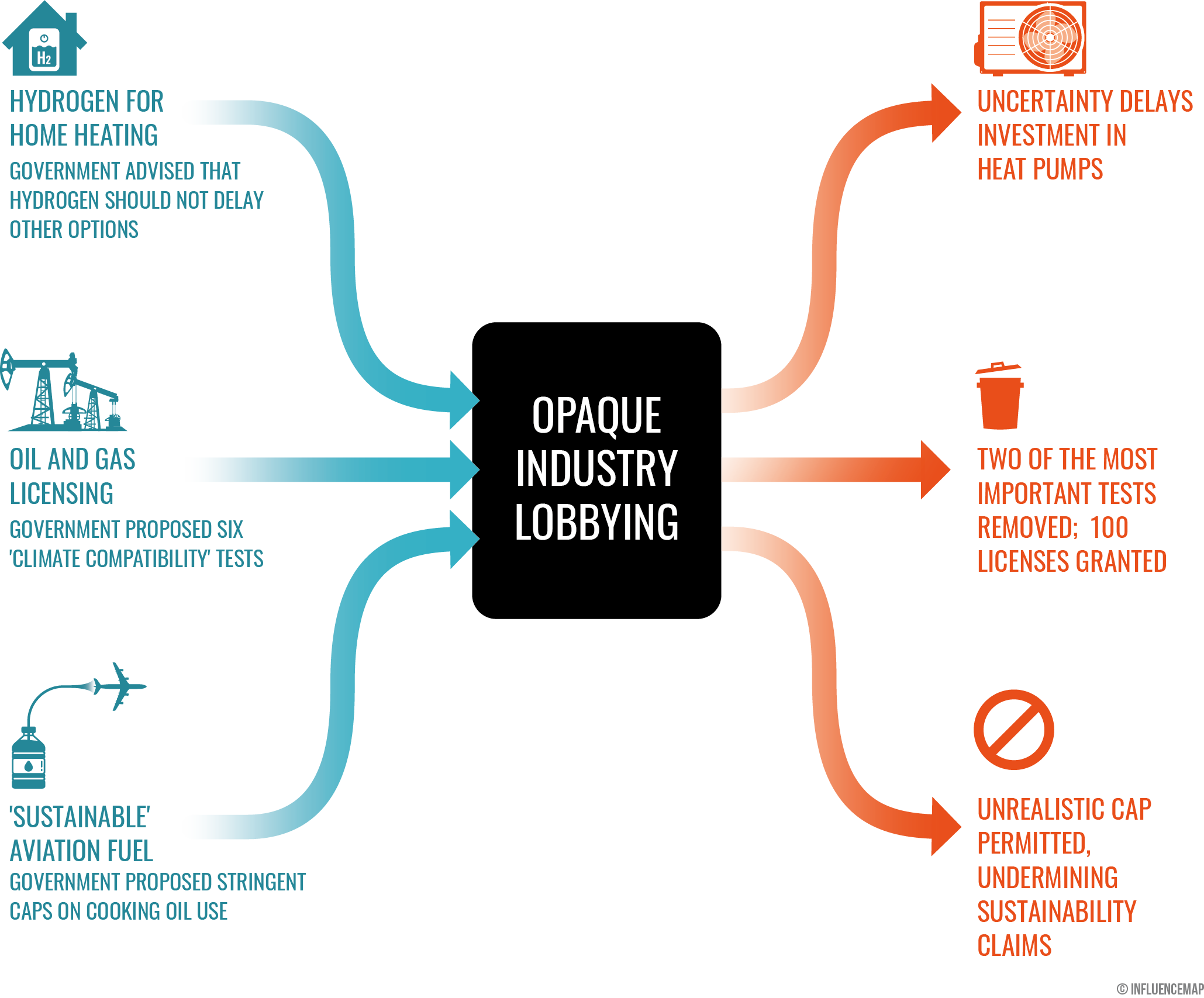InfluenceMap’s analysis indicates that there is a major transparency gap between the lobbying taking place in the UK, and that which is disclosed by companies and the Government. This report looks at corporate lobbying on key climate and energy policies, but its recommendations apply to lobbying transparency in general. (The term ‘lobbying’ is used in this report as an umbrella term defined by the OECD as the influencing of public policy - further details in the Glossary.)
Comparatively weak transparency rules and an over-reliance on voluntary corporate reporting are the cause of this gap, enabling strategic advocacy from a relatively narrow set of corporate interests (most adversely affected by progressive climate regulations) to threaten the UK’s transition to net zero. Stronger transparency rules are needed urgently to ensure companies are accountable for aligning their lobbying with their stated climate commitments.

Reforming UK lobbying rules to deliver transparency and integrity
Introducing mandatory corporate transition planning
Comment from Peter Hugh Smith, Chief Executive, CCLA Investment Management
Greater transparency on lobbying is a vital part of credible transition plans, helping investors assess whether company strategies align with their decarbonisation commitments. We know the world needs to do more, and move faster, to avoid the worst impacts of climate change. The Government’s introduction of mandatory transition plans can consolidate best practice and provide clear, reliable information, enabling effective stewardship and helping align capital with a sustainable future.
Comment from Alastair McCapra, CEO of the Chartered Institute of Public Relations
This work provides a clear illustration of how inadequate and opaque lobbying rules undermine effective policymaking. Business engagement should help to build sounder policy with better outcomes for the public, but unaccountable lobbying breeds public mistrust. This important report removes the guesswork needed to piece together what kind of lobbying is taking place. It is very encouraging to see it conclude with the CIPR's position that a broader lobbying register will support that vision.
Comment from Dr Susan Hawley, Executive Director, Spotlight on Corruption
Influence Map’s excellent report starkly demonstrates how major transparency gaps in the UK’s lobbying regime are undermining the development of good climate policy. We fully support their recommendations to make lobbying much more transparent and bring the UK in line with international best practice. These reforms would support more participatory and open decision-making to help rebuild public trust and ensure better decision-making, widening the evidence base for policy making and reducing risks of policy capture by vested interests.
Comment from Rachel Davies, Advocacy Director, Transparency International UK
This report highlights, yet again, the glaring gaps in our lobbying transparency regime and the potential risks of favoring a small group of vested interests at the public's expense. The UK needs to catch up to other comparable democracies and act swiftly to introduce a comprehensive lobbying register with meaningful disclosures.
InfluenceMap CIC is not a political campaigning organisation as defined by The Community Interest Company Regulations 2005. This report and its recommendations are presented, based on InfluenceMap's extensive research into corporate policy influencing practices globally, in the interests of greater disclosure and transparency in the UK on the matter and form part of our mission as a Community Interest Company.